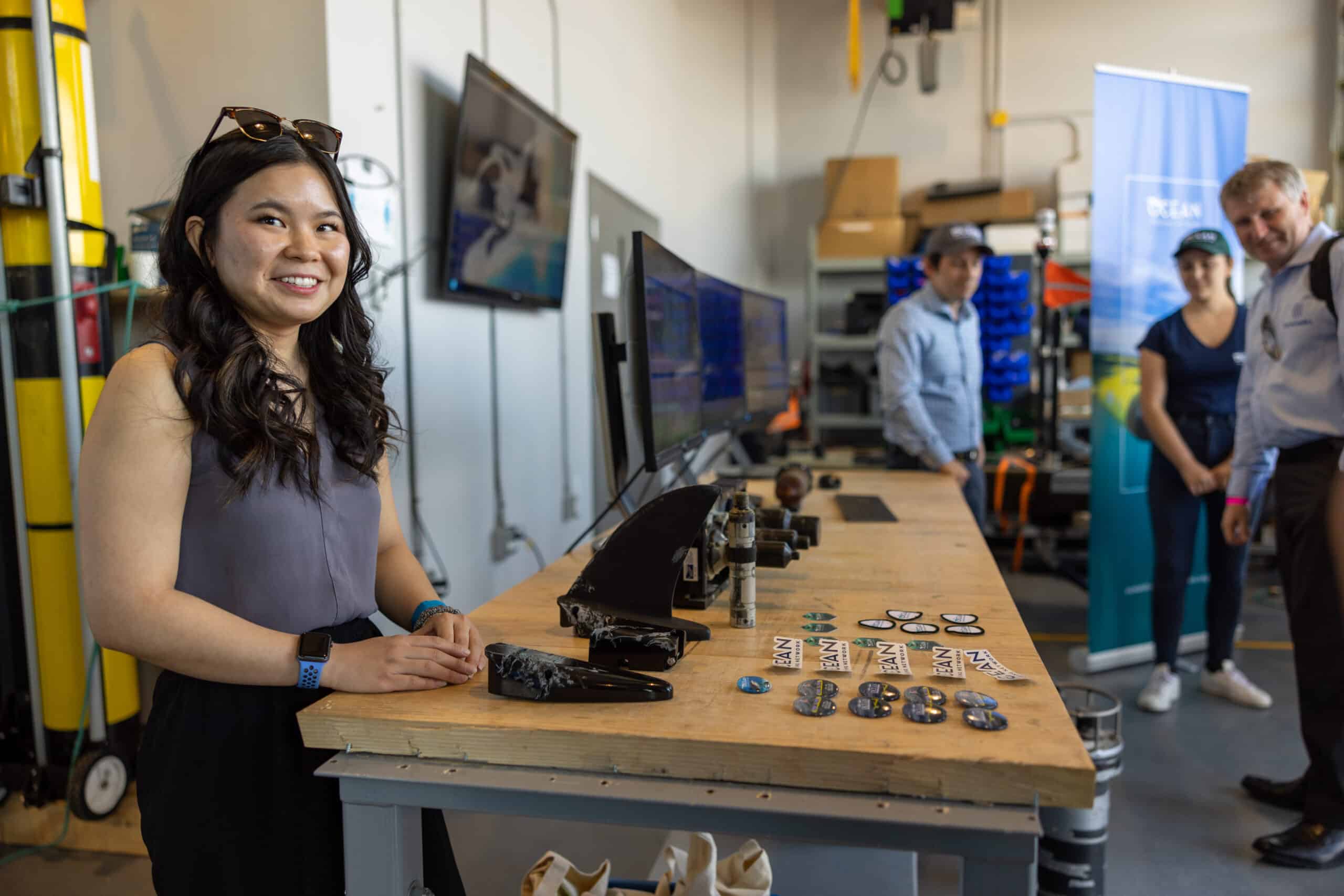As a nation with nearly 250,000 kilometres of sprawling coastline, the ocean has always been central to Canada’s prosperity. Marine tourism, fisheries and aquaculture, energy, marine transportation, and defence and security sectors are driving innovation and leading to unprecedented growth in the formation of companies focused on marine technology. Referred to as Ocean Enterprises, these companies are growing in Canada at a pace outperforming our global counterparts.
As the Blue Economy grows, the need for programming and initiatives leading to a robust and talented workforce grows with it.
It is estimated that in Nova Scotia, the Marine Renewable Energy sector alone will require 22,000 workers by 2040. Furthermore, new research by the Maritime Just Transition Task Force cautions that as many as 800,000 seafarers will require additional training by the mid-2030s to help meet decarbonization goals. These significant numbers highlight the fast-approaching need for an ocean-focused workforce, and building talent can take decades. It has become clear that we need to start today to prepare the workforce of tomorrow.
By delivering programs that foster a skilled and knowledgeable workforce for the future, COVE is inspiring young minds to explore and pursue careers in the growing marine technology and sustainable energy industries and creating a pipeline for talent who want to work in marine tech and stay in Atlantic Canada.
“COVE is involved in all life cycle stages of workforce development by offering educational programs to school-age youth to generate their interest in marine technology, to helping young professionals find their place across marine subsectors and advancing their careers,” said Tanya Lush, Director of Workforce Development at COVE.
The COVE Internship Program is for students across Canada seeking opportunities in the marine technology sector and for employers looking to expand their business. This year, COVE hired 23 students to work at 18 companies across the marine sector. COVE’s Internship Program aims to accelerate the marine workforce, bring new talents to workplaces, and help diversify the industry. This year, the COVE Internship Program is proud to represent 77% of underrepresented groups, increasing equity, diversity, and inclusion across the industry.
“While our COVE Internship Program is valuable to interns, it benefits employers just as much. Internships have a very close return on investment (ROI) for companies. Employers are exposed to new ideas and technologies from some of the brightest minds in our nation’s universities and colleges while building a talent pool that will return to the sector. Our educational programs are led to inspire the young minds of our future, and together, these initiatives will eventually create a full circle,” said Lush.
Host companies were assigned specific interns of varying educational backgrounds, including engineering, software development, ocean sciences, and business, to help companies complete ambitious projects.
“We’re doing an expansion in overall software capabilities in terms of enriching the features, adding more security capabilities, and providing different user type experiences,” said Ross Arsenault, Co-founder and COO at Ashored. “Our software acts as a controller for rope-on-command fishing systems, essentially, it’s a suite of gear-tracking capabilities that can work for ropeless fishing. Our intern, Yuan Wang, is a computer science student and has played a dominant role in doing a lot of backend work that supports the multi-level access databases for the overall gear tracking project.”
While the COVE interns have specific educational backgrounds and skillsets to help employers gain valuable support for their business and its existing employees, internships also allow companies to invest in their own future success and perhaps discover new talent and future leaders.
“Interns bring new ideas and fresh perspectives to companies and the industry, and companies can’t grow if they aren’t continually being innovative,” said JoAnn Nippard, Corporate Services Manager at JASCO Applied Sciences. “Interns are always motivated and excited, and those feelings spread amongst the team and improve work productivity overall, especially when helping full-time staff complete large projects.”
Another way COVE has enabled the workforce is by providing educational programs for school-age youth. For the first time, in partnership with OffshoreWind4Kids, COVE hosted the OffshoreWind4Kids Interactive Showcase. A first-of-its-kind program in Canada that promotes marine renewable energy education and awareness among youth, nurturing the next generation of leaders who will drive Canada’s transition to a net-zero future. The event immersed families and youth into the world of offshore wind while they learned about the subject and tried their engineering and technical skills by building mini wind turbines and testing them in the water, imagining themselves as real-life workers.
COVE and OffshoreWind4Kids understand that offshore wind energy’s future relies on developing a skilled workforce and fostering innovation. By empowering the next generation of leaders, COVE is building a sustainable and prosperous future for the global offshore wind industry. Through these initiatives, COVE equips young minds with the knowledge, skills, and inspiration needed to tackle the challenges of tomorrow and drive the transition to clean energy.
From youth expressing curiosity about the ocean to post-secondary students seeking mentorship and integrated learning opportunities, mid-career talent looking to pivot, and underrepresented groups across the country facing industry barriers, enhancing our focus on education, opportunity, and accessibility is crucial. A skilled workforce is essential for addressing complex challenges like climate change impacts, overfishing and pollution while also fostering economic growth and the responsible stewardship of our ocean for current and future generations. Without ensuring programs and practices are in place for a sustainable talent pipeline, our Blue Economy future may not be fully realized.


